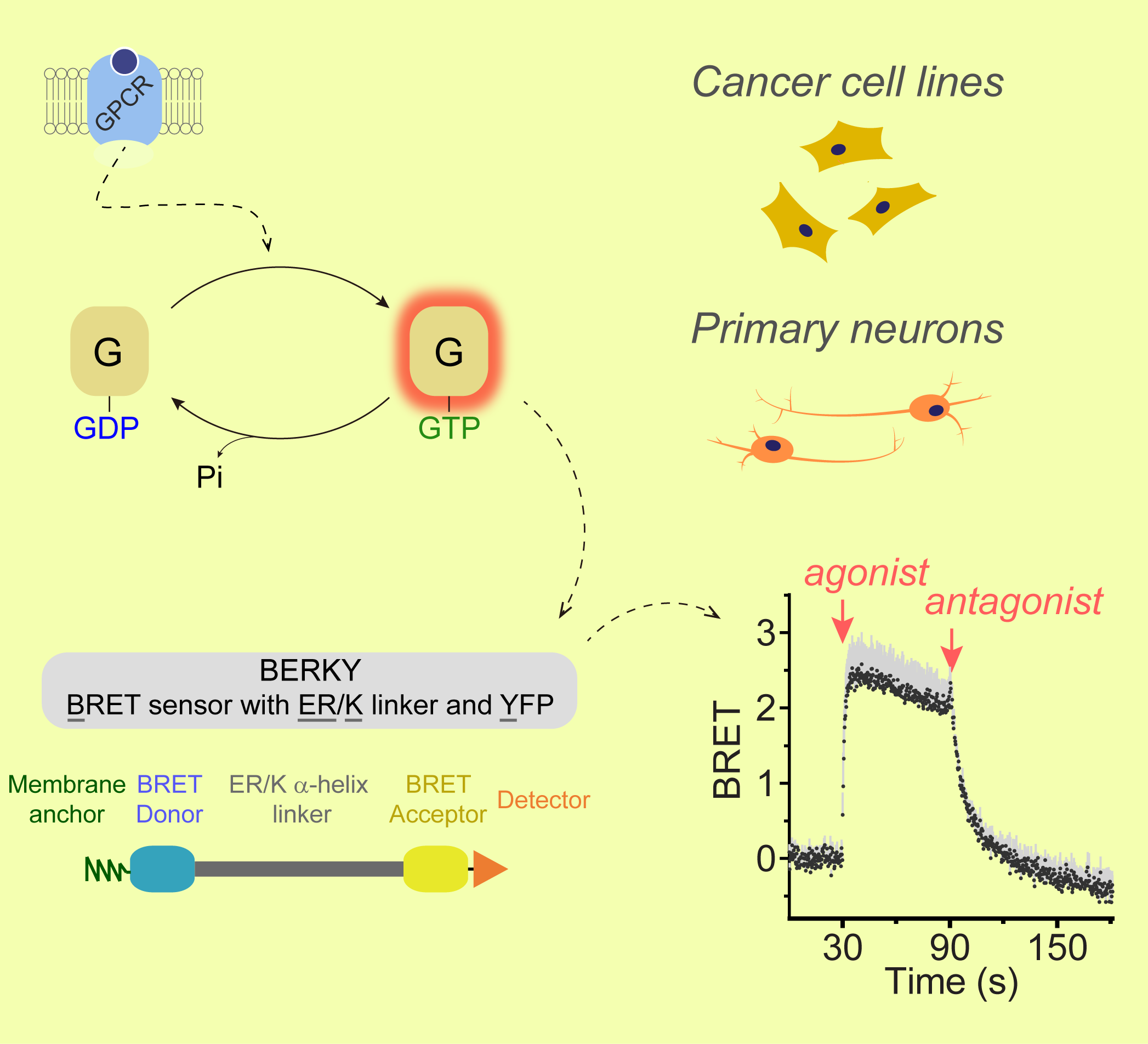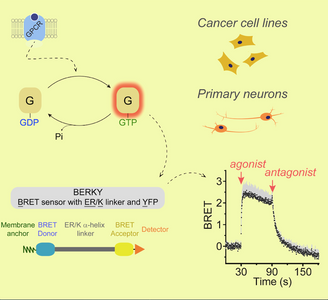The Garcia-Marcos lab has developed a suite of modular optical biosensors that enables detection of hetrotrimeric G-protein activity in live cells in contexts ranging from tumor cells to primary neurons.
Heterotrimeric G-proteins are the main transducers of signals from GPCRs, mediating the action of countless natural stimuli and therapeutic agents (about one-third of FDA-approved drugs). The new biosensors described in the paper published in Cell allow the direct detection of endogenous active G-proteins, something that had not been possible to date. This work showcases several biosensors for different G-protein subtypes and applications in multiple cellular models and research areas, from characterizing cancer-associated G-protein mutants to neurotransmitter signaling in primary neurons. This new resource will be valuable in characterizing G-protein signaling in live cells with high fidelity, temporal resolution, and convenience, propelling both fundamental research and drug discovery applications.
